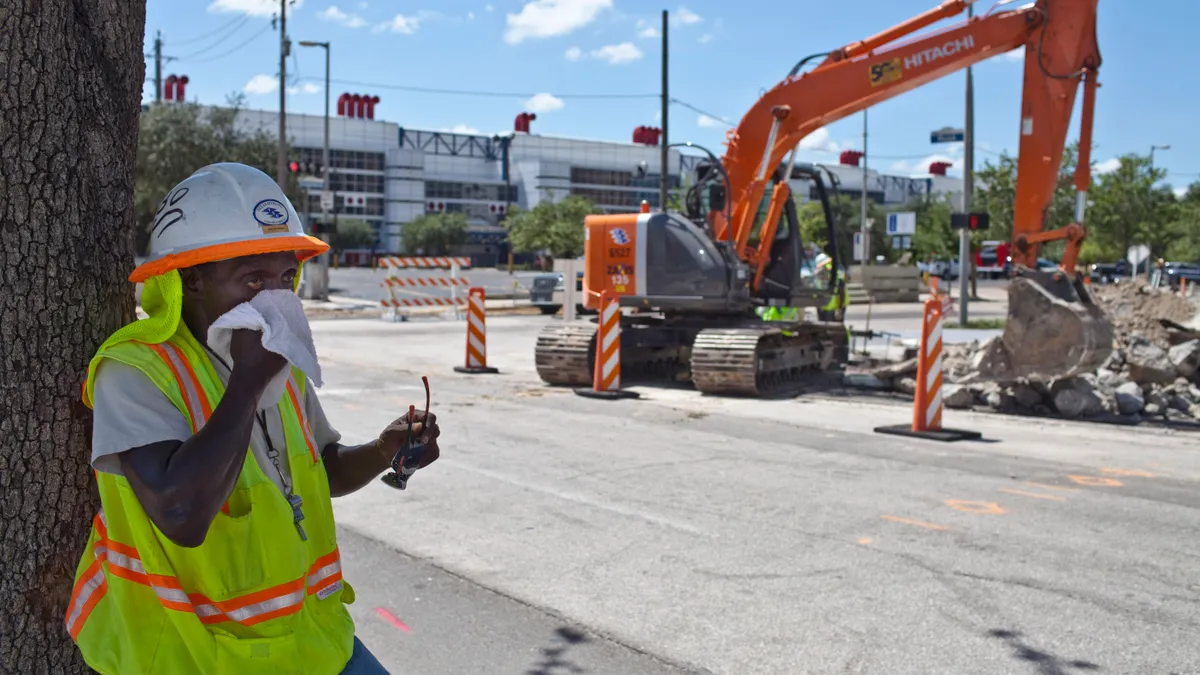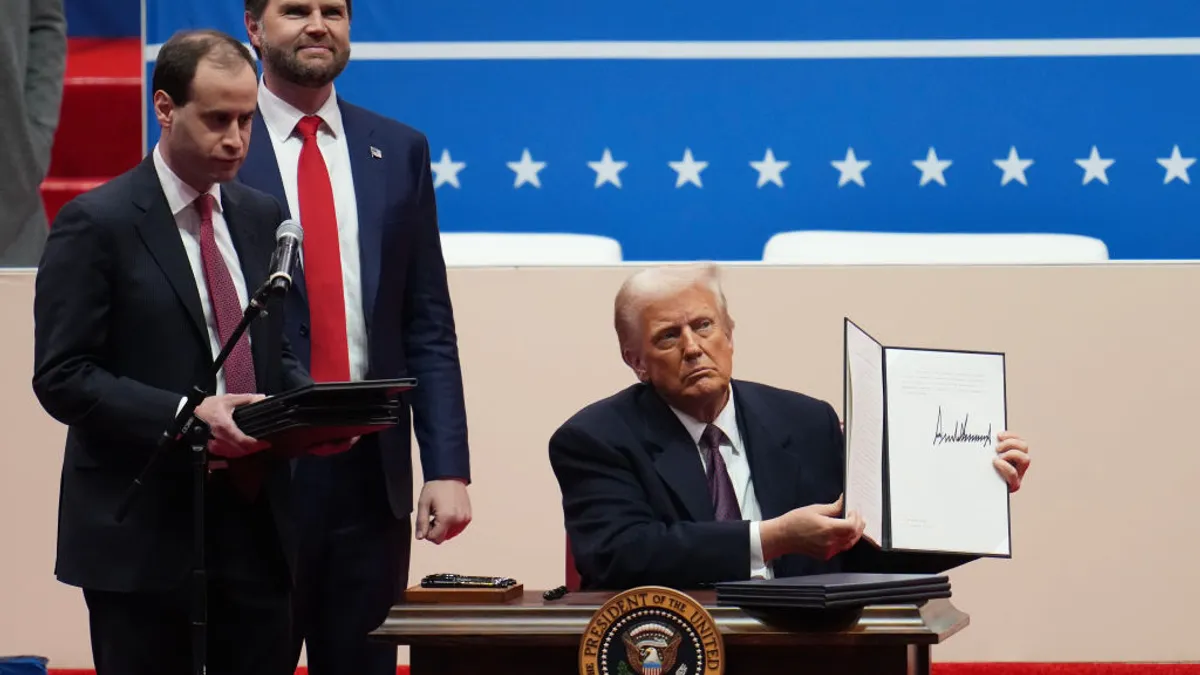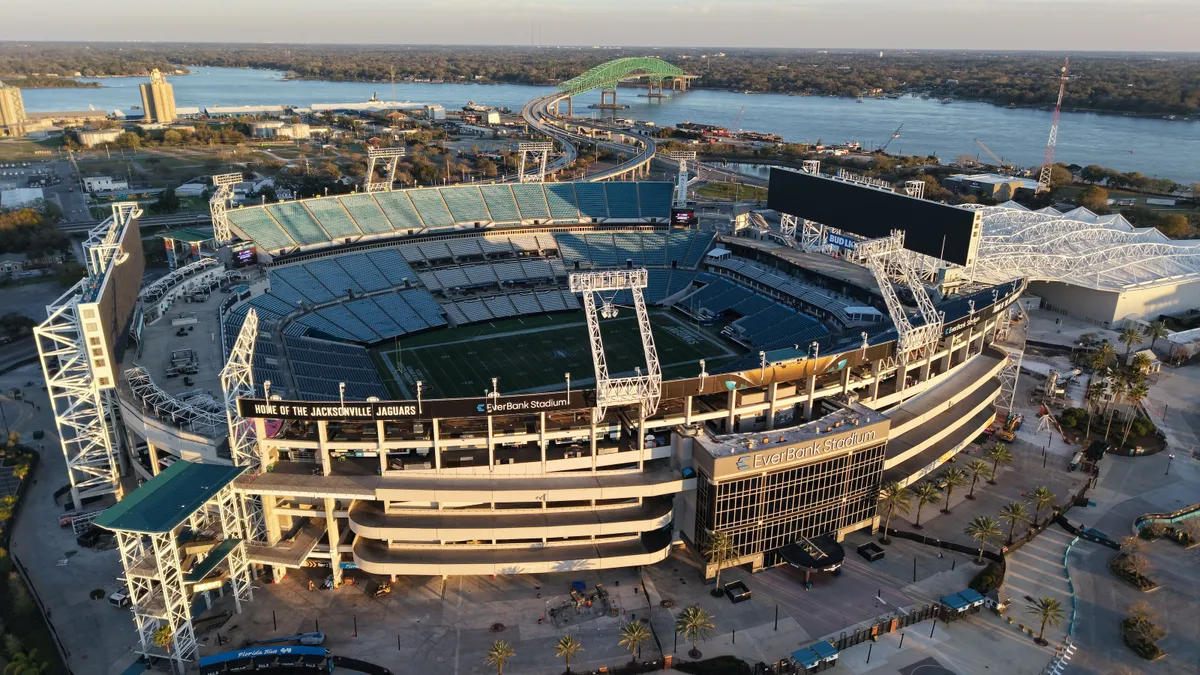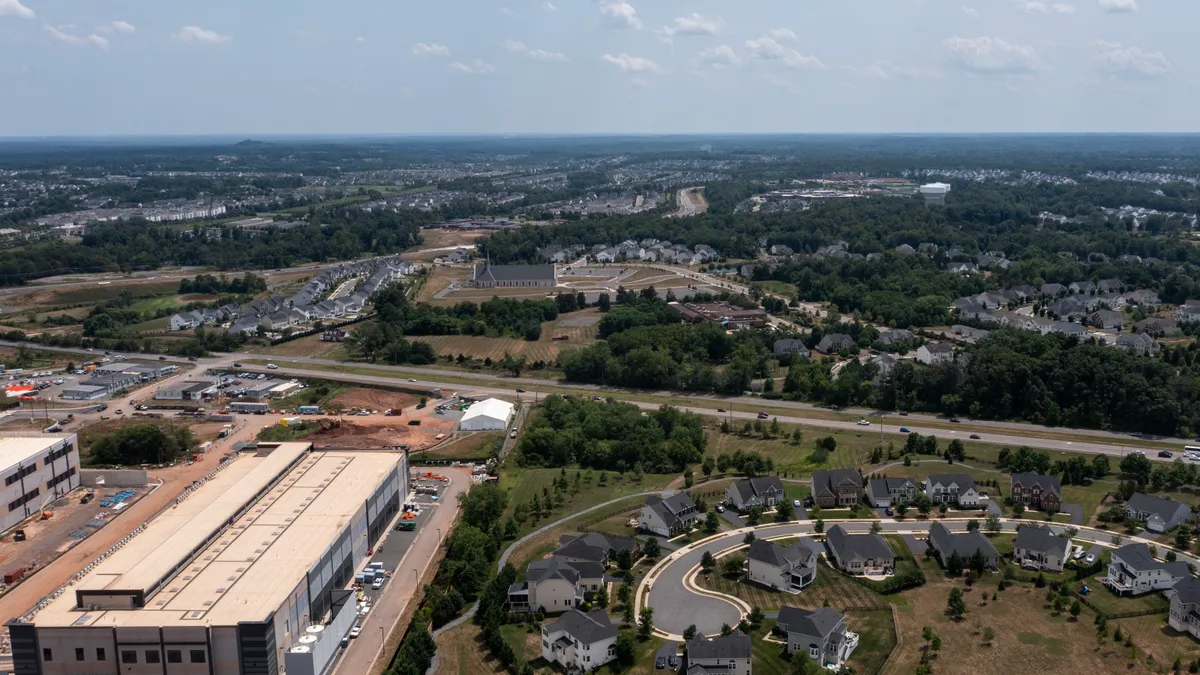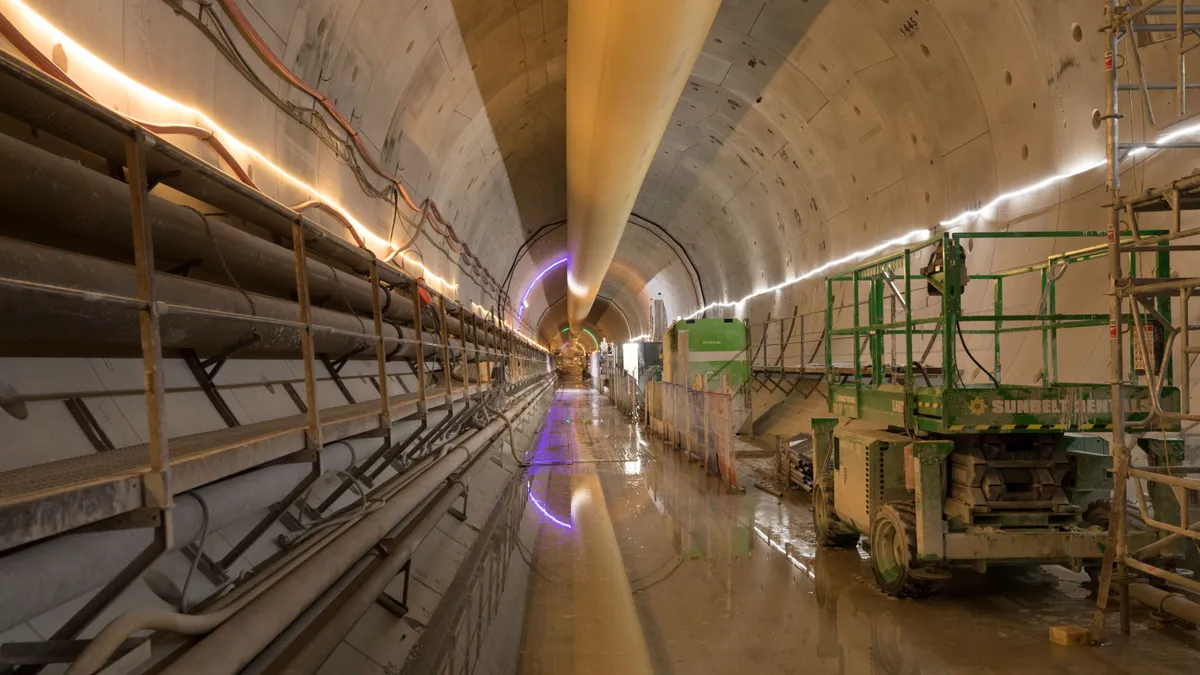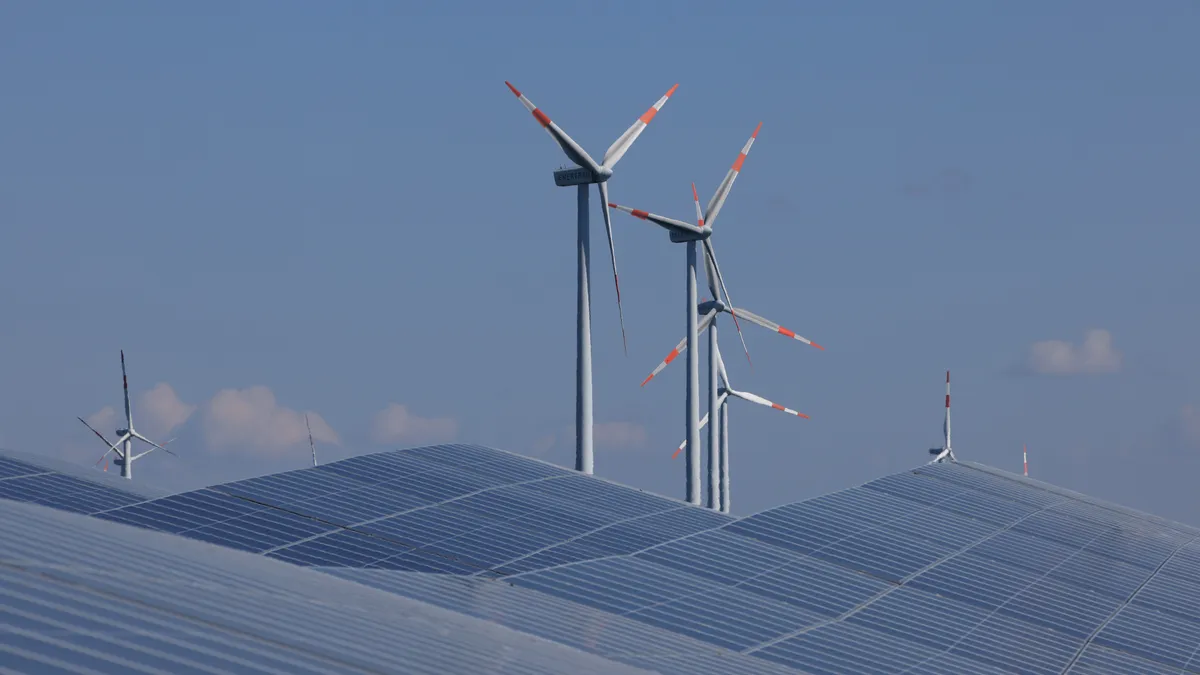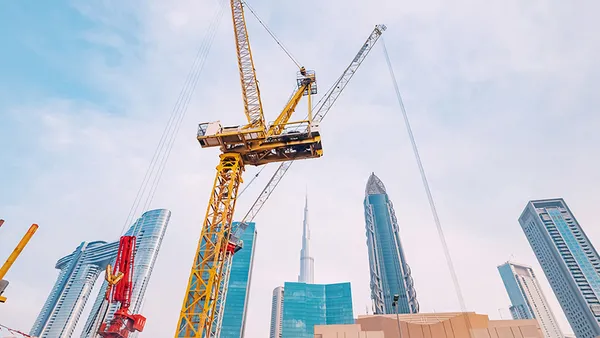Texas has several new laws that could have a big impact on construction, a massive industry that contributes $101 billion to the state’s gross domestic product, according to Associated General Contractors of America. Five relevant bills were just signed into law in the legislature’s most recent session.
Read on about five new laws and their implications for construction, plus other key bills that are dead for now but could be revived in the future.
Texas Regulatory Consistency Act rolls back local worker protections. This wide-ranging legislation bars cities and counties from passing regulations and overturns existing rules that go further than state law in a wide range of areas: agriculture, business and commerce, finance, insurance, labor, natural resources, occupations and property.
Its supporters say its purpose is to minimize cumbersome and differing business regulations across the state and provide consistency. For Texas’ construction industry, it would block local ordinances that mandate paid sick leave, water breaks for construction workers in Austin and Dallas, a $15 minimum wage for workers on county construction projects and safety training in Harris County.
Gov. Greg Abbott signed H.B. 2127 into law on June 13, after it passed the legislature in April.
Texas Jobs & Security Act restricts clean energy projects from tax breaks. This new law exempts oil and gas projects from the property taxes they pay to local school districts, but bars clean energy builds such as wind and solar farms from easily receiving such exemptions. The bill replaces the similar, expired Chapter 313 program that sought to create economic incentives for megaprojects that bring jobs and investment into a school district.
Despite its history as a fossil fuel producer, Texas is enjoying a booming business in clean energy right now — the state actually led the country in renewable energy projects in 2021, according to a report from the American Clean Power Association trade group. Oil and gas industry leaders applauded H.B. 5, but critics say it would sap momentum in the clean energy sector and give fossil fuel producers an unfair advantage.
Abbott signed H.B. 5 on June 9, after it passed the legislature in May.
H.B. 14 speeds permitting by allowing third-party reviews. Under this law, if a municipality doesn't act on a development application or conduct a necessary inspection within 15 days of state-set deadlines, the applicant is allowed to use a third-party reviewer to conduct the inspection and sign off on permits.
The third party can be a contractor hired by a regulatory agency or a private party, so long as they are properly licensed. They must also genuinely be a third party, not someone who is affiliated with the application.
Abbott signed the measure on June 12.
Texas CHIPS Act boosts the state’s semiconductor industry. This law, which received overwhelming bipartisan support in the state house, aims to encourage the semiconductor industry to expand in Texas. It creates the Texas Semiconductor Innovation Consortium, which involves state higher-education institutions to serve as an advisory panel and expand workforce training for the industry. It also creates the Texas Semiconductor Innovation Fund to provide grants to companies that invest in the state.
The legislation comes on the heels of the $52 billion federal CHIPS and Science Act, signed last year, which subsidizes the semiconductor industry and provides a 25% tax credit for companies that build facilities in the U.S.
HB 5174 was signed by the governor on June 8.
S.B. 28 funds water infrastructure repairs and new projects. Together, S.B. 28 and Senate Joint Resolution 75 designate $1 billion to fix the state’s failing water infrastructure and jumpstart massive water supply projects. However, Texas State Sen. Charles Perry, a Republican, said the sum needed to fully address the problem is closer to $500 billion, the Texas Tribune reported.
The laws created the Texas Water Fund, which can be used for upgrades to existing infrastructure as well as new water projects, such as desalination and treating water that comes up in the oil fracking process. They also created the New Water Supply for Texas Fund, which aims to foster 7 million acre-feet of water by 2033.
The measures were signed into law on June 9.
Could this legislation make a comeback?
Other bills received much support, but ultimately did not become law:
S.B. 6 would give gas projects a financial boost. The bill would allocate at least $10.8 billion to build new gas-fueled power plants that could be activated during emergencies. The goal is to prevent another catastrophic power shortage like the one that killed more than 200 people in a severe winter storm in 2021, according to the bill’s sponsors, though gas-fueled plants also failed during the storm.
However, not everyone in the energy industry is pleased with the measure. According to the Houston Chronicle, “Opponents, including trade groups representing natural gas and coal-fired power plants as well as renewable energy advocates, say SB 6 would hurt the state’s competitive electricity market and could cost the public as much as $18 billion.”
S.B. 6 passed the Senate on April 5 and was referred to the State Affairs Committee on April 17. The 2023 legislative session ended May 29 without more movement, but similar legislation could be proposed in the future.
The No Blank Checks Act targeted Austin’s light rail plans. This bill jeopardizes Project Connect, Austin’s multibillion-dollar transit plan, by restricting the Austin Transit Partnership’s powers to borrow money.
The bill would force the ATP to hold a citywide election before it borrows a large sum, though voters already approved Project Connect. The agency needs to borrow around $2.5 billion to pay for the upfront costs of building the light rail, now estimated to cost $11.6 billion overall — about $4 billion more than its initial price tag.
The Senate approved the act in May with two amendments that further restricted the City of Austin from helping ATP with debt. Before it headed to Abbott’s desk however, an Austin Democrat raised an objection to the amendments, saying they changed the bill’s purpose.
That objection was sustained, and H.B. 3899 was returned from the House on May 26 for further action, meaning the bill is dead — for now.
In addition, these anti-renewable energy bills passed the Senate but are dead for now:



